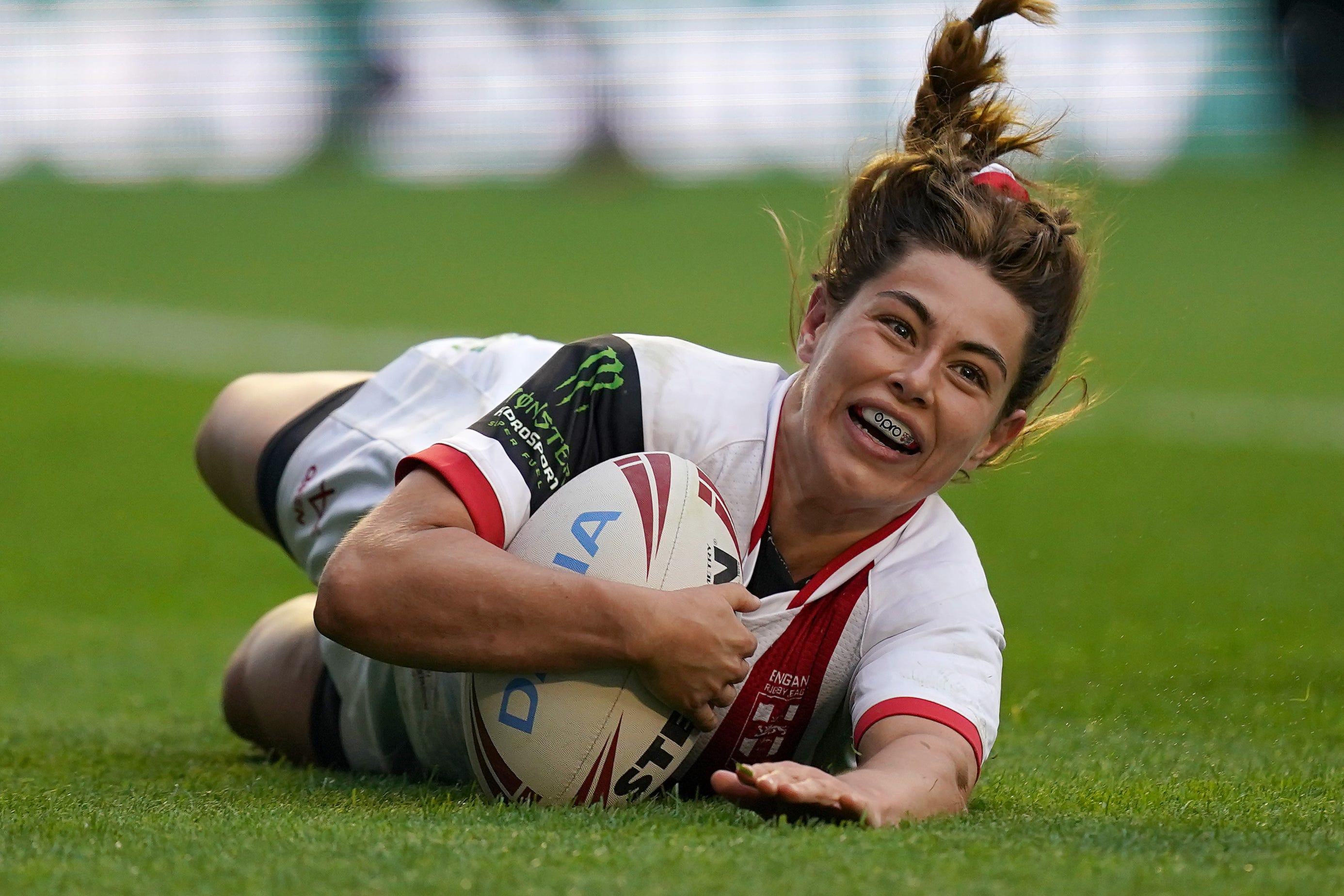England captain Emily Rudge relishing opportunity for women’s rugby at World Cup
The negligible levels of interest that greeted England’s trip Down Under in 2008 are a far cry from the revolution gripping the domestic game

Your support helps us to tell the story
From reproductive rights to climate change to Big Tech, The Independent is on the ground when the story is developing. Whether it's investigating the financials of Elon Musk's pro-Trump PAC or producing our latest documentary, 'The A Word', which shines a light on the American women fighting for reproductive rights, we know how important it is to parse out the facts from the messaging.
At such a critical moment in US history, we need reporters on the ground. Your donation allows us to keep sending journalists to speak to both sides of the story.
The Independent is trusted by Americans across the entire political spectrum. And unlike many other quality news outlets, we choose not to lock Americans out of our reporting and analysis with paywalls. We believe quality journalism should be available to everyone, paid for by those who can afford it.
Your support makes all the difference.Fourteen years after making her World Cup debut as a 16-year-old in Australia, England captain Emily Rudge is relishing an unprecedented opportunity for women’s rugby league when the home tournament kicks off with a double-header at Headingley next week.
The negligible levels of interest that greeted England’s trip Down Under in 2008 are a far cry from the revolution gripping the domestic game, with an expanded Women’s Super League and a first match against Brazil that is set for a record women’s rugby crowd of over 16,000.
That growth of the women’s game in England has been mirrored across the globe, with an expanded field of eight teams including the debutants from South America plus Papua New Guinea and Canada, both of whom will also provide England’s opponents in Group A.
“The game has come such a long way from when I started all those years back, when we had so few players it was difficult to even get an England team together,” said Rudge.
“In 2008 the visibility wasn’t there. Nobody knew that women play rugby league and when you’re going out there to represent your country and people don’t even know the sport exists, that makes it really difficult.
“To go from there to where the game is now, with so many talented girls coming through and so many people wanting to be a part of it, is phenomenal and it is only going to continue to filter through to the international game.”
England will start as overwhelming favourites to overcome the Brazilians, who played only their second competitive match in a warm-up fixture against France at Featherstone on Thursday night.
But they will be especially wary of Papua New Guinea, a team that encapsulates the growth of the women’s sport internationally, and who beat England in the second match of a two-test series in Port Moresby in 2018.
Group B features double defending champions and overwhelming favourites Australia, plus New Zealand, who are also predicted to reach the final and extinguish English hopes of a maiden World Cup win.
Nevertheless an England squad bolstered by a competitive Women’s League season – and the attention afforded them by the BBC documentary ‘Women of Steel’ – will be determined to capitalise on their time in the spotlight.
One of the things we've managed to do over the years is get the girls in front of big arenas and as far as we are concerned, the bigger the better
“The documentary was a great way of showing the ins and outs of what it takes and I’ve had a lot of messages to say that it was really inspirational,” added Rudge.
“People have really bought into the team and the personalities, and they want to see the team being successful, which is really important going into this World Cup.”
England’s opener against Brazil next Tuesday, which precedes the second Group A fixture between PNG and Canada, is set to break the attendance record for either women’s rugby code in the northern hemisphere.
But the prospect of kicking off as enormous favourites in front of such a significant crowd is not something that England head coach Craig Richards believes his squad should be fazed by.
“One of the things we’ve managed to do over the years is get the girls in front of big arenas and as far as we are concerned, the bigger the better,” said Richards.
“If you get the crowd behind you it means you are playing well and working hard. I think the crowd is going to be a massive advantage for us if we do what we are capable of on the field.”
Join our commenting forum
Join thought-provoking conversations, follow other Independent readers and see their replies
Comments